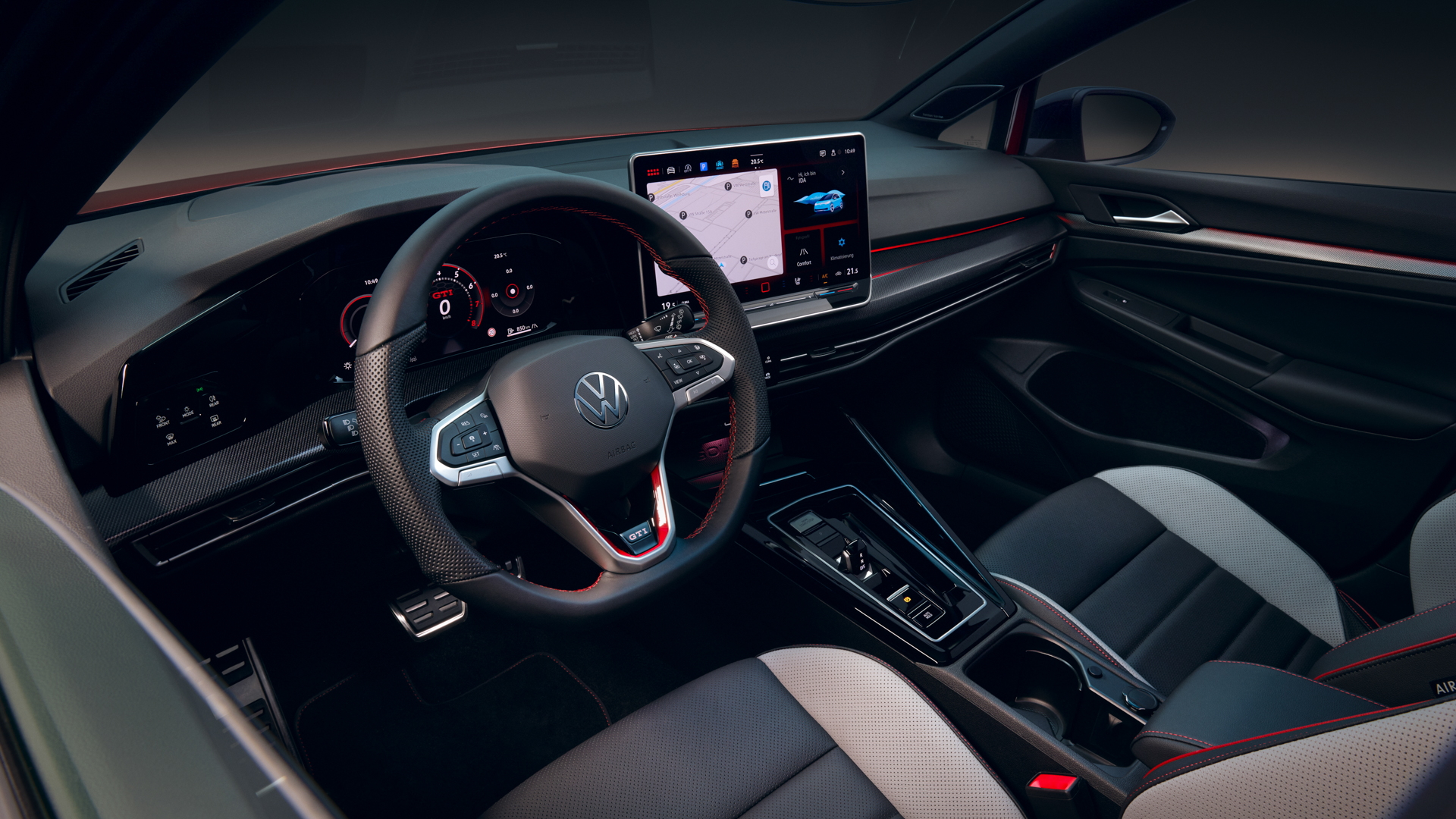

Remember when ChatGPT took the world by storm, and then everyone quickly got nervous over its dangerous potential? Well, now the technology is headed for your car. Volkswagen has just pulled the cover off its ChatGPT infotainment integration at the 2024 Consumer Electronics Show kicking off this week. The automaker says it plans to add ChatGPT AI to every model running its latest IDA voice assistant starting in the second quarter of this year.
Volkswagen partnered with automotive software company Cerence to bring its ChatGPT-powered “Cerence Chat Pro” software to its IDA infotainment system. All of the brand’s electric cars come equipped with IDA, such as the ID.3, ID.4, ID.5, and ID.7, as well as the upcoming, updated Golf, all-new Passat, and all-new Tiguan. However, the ChatGPT component may not launch in the United States, at least not immediately. According to the company’s official release, “the feature is being considered” for U.S. customers, and VW doesn’t detail in which regions precisely ChatGPT will roll out first.
Perhaps it’s using CES to gauge public reception. While the new IDA software will use ChatGPT as a resource, Volkswagen says that the chatbot won’t have access to any personal or vehicle data. Essentially, if you ask the integrated voice assistant a vehicle question or give it a command—say, inquire about a navigation ETA, or tell it to adjust cabin temperature—it’ll simply defer to the car’s normal system. However, if you ask it a random question that the car can’t answer, it’ll summon ChatGPT like its own AI-powered Google search. All questions and answers are deleted immediately afterward, Volkswagen says.

“IDA automatically prioritizes whether a vehicle function should be executed, a destination searched and the temperature adjusted. If the request cannot be answered by the Volkswagen system, it is forwarded anonymously to AI and the familiar Volkswagen voice responds,” the manufacturer’s press release explains.
While Volkswagen will be the first automaker to introduce an AI chatbot across its range, it’s not the first to trial such tech; Stellantis-owned DS Automobiles made news of a similar initiative in October. Of course, it won’t be the last, either. It’s actually surprising that it took this long for a brand to bring ChatGPT to its cars. Get ready, because this is likely only the beginning of a trend that will see automakers race to increase the usage and capabilities of AI in their vehicles.
Got tips? Send ’em to tips@thedrive.com